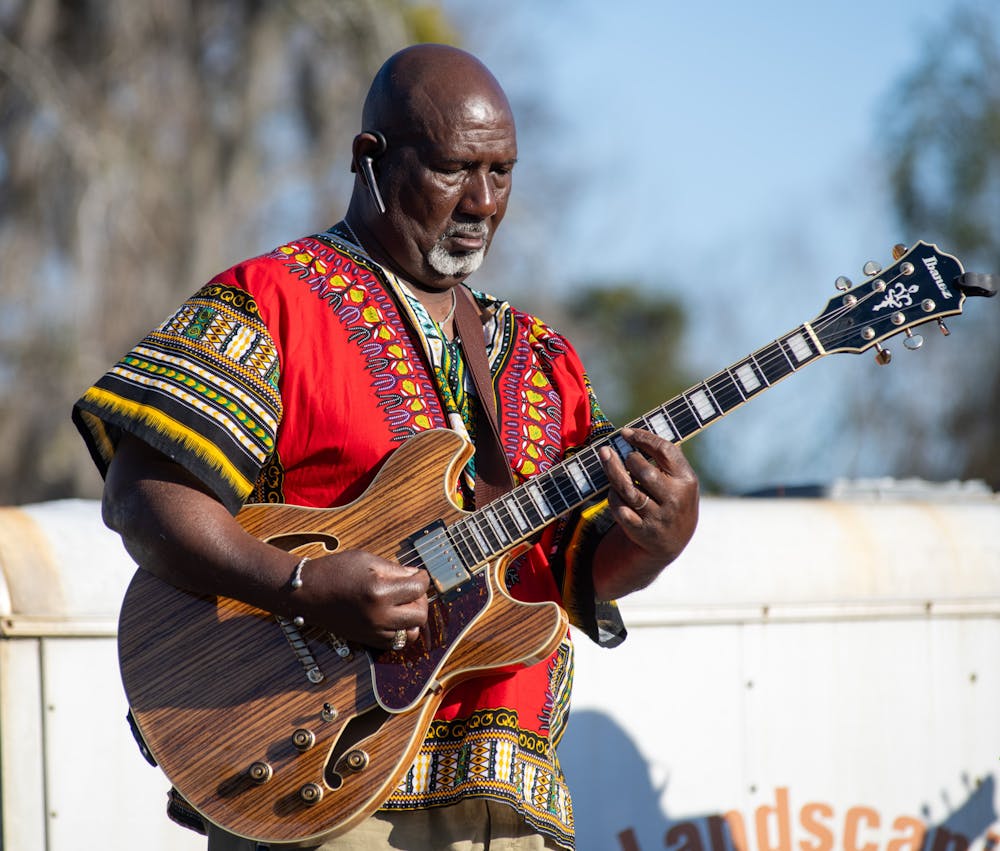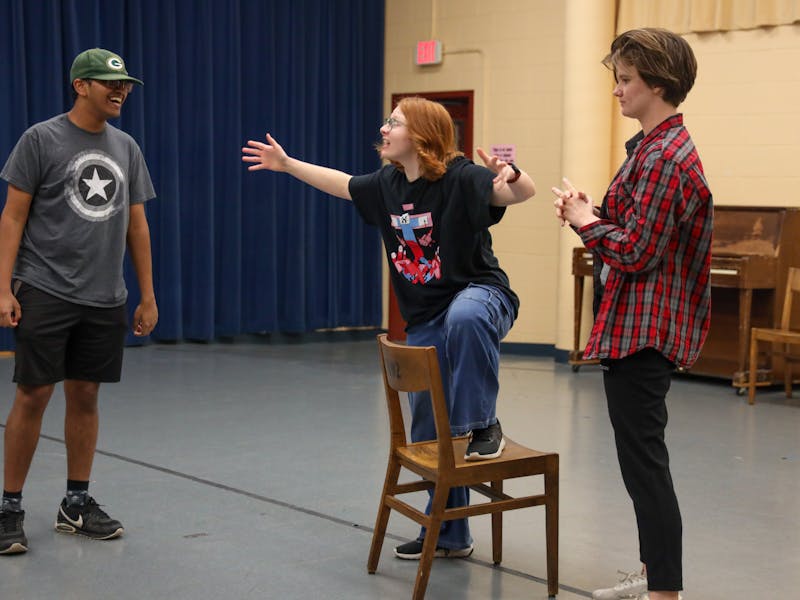When we think of culture, we may consider it as immutable. There are features associated with every culture, from specific traditions to clothing to food. They are meant to keep you connected to your family and provide ties to your community and ancestry. However, cultures are also subject to change over time, often due to historical and environmental pressures. Immigration, colonization, slavery and more can have a large impact on traditional customs and ways of life. In the face of this, how do individuals continue to be connected to their culture? What are some communities that have continued to keep their cultural traditions alive in the face of intense adversity, and what are their stories?
One such community is spread across the Lowcountry regions of North Carolina, South Carolina, Georgia and Florida. The Gullah Geechee community has a distinctive culture unlike anywhere else in the US.

Individuals from the Gullah Geechee community are descendants of enslaved individuals from the West Coast of Africa, specifically the “Rice Coast,” which included Sierra Leone, Ghana, Senegal, Nigeria, Gambia and more. Southern plantation owners sought to enslave people from the Rice Coast as they did not have the necessary knowledge to grow rice in the humid regions of the South.
Growing rice required extensive knowledge and experience with engineering, astronomy, and the tides. Pelor Jemonia Richards, a historian and member of the present-day Gullah Geechee community, explained the enslaved Africans’ resilience and ingenuity.
“Understand that these people came here for one job and one job only, and that was to cultivate rice," Richards said. "They did just more than cultivating rice. These people cleared out over 236,000 acres here in South Carolina to cultivate rice. That’s prior to any rice being grown. These people were here to cultivate. Understand that when they did it, that was an amazing task, but they did it by using the same raw materials by clearing out the waterways to creating, what we call now, rice trunks.”
Richards explains that these rice trunks could be opened and closed during high and low tides to “control the waters” in rice fields.
“That was ingenuity at its best, even then,” Richards said. “Not only that, they built these, what we call now, rice rafts, that transport them across from bank to bank to clear out the rice fields.”
The cultivation of rice would not have been possible without the stolen knowledge and experience of enslaved Africans. Rice ultimately made South Carolina one of the richest original thirteen colonies, and Charleston one of the richest cities in the world at the time, according to Gullah Museum SC. The New York Times states that the color of the unhulled grains of this rice strain combined with its immense profitability quickly gave rise to the name “Carolina Gold.”
Richards explained that the enslaved individuals were not just rice cultivators. “Understand these people had still—and these people were the enslaved Africans—they had more to offer. What am I talking about? They were seamstresses, they were tailors, they were chefs, they were cooks, they were blacksmiths, they were architects, engineers, doctors, as well as nurses.” It is important to remember that before each person was enslaved, they had their own livelihoods and experiences. When they were brought to the New World, these individuals continued to maintain essential parts of their culture and identity in spite of the brutality they faced.
The isolated nature of the plantations led to the evolution of the Gullah Geechee community today, who have a unique culture and language. Richards explained that the name Gullah derives from the Angola tribes of West Africa, while Geechee is from the Ogeechee River in Georgia.
Today, the Gullah Geechee community continues to thrive in the Lowcountry regions of South Carolina. Richards herself is seventh-generation Gullah Geechee. She has been able to trace her ancestry back to her seventh-great grandfather, Sir Ransom Rice, a rice cultivator born in Georgetown, SC in 1825.

Richards explained her motivation to learn more about her ancestry. “When I became a mother, the word legacy—it rung to a whole other level within myself. I’m a big history stickler, and I stand by that famous phrase: in order for you to know where you’re going, you have to know where you come from.”
Richards described the difficulty in trying to learn more about her personal history, as there was not a lot of documented history regarding her ancestors. She read articles and visited various museums and archive rooms to learn more.
“Understand in history, a lot of documents were lost, intentionally lost. It’s literally reading other people’s history, other people’s narrative of their experiences to putting together this piece of, ‘Who am I in Georgetown, SC?’”
Richards also learned she was directly descended from two of twelve formerly enslaved Africans who had purchased the Dunbar plantation in Georgetown, SC in 1873. As of 2023, 85 percent of that land is still owned and controlled by the direct descendants of those twelve formerly enslaved Africans. The remainder of the property has been sold by them for a profit.
“Not stolen, not destroyed, but sold for a profit,” Richards emphasized. “That's a lot to be proud of, and I'm very proud of that information. I let anyone I know going through this community that I call home: we should be proud of what we have because not a lot of people can tell you that. Not a lot of people can trace back that far."
Richards continued to underscore the pride and respect she held for her community and ancestry. "Within the Gullah Geechee community we stand by a phrase, and that phrase is simple: help me to help you to help us. Help me to help you to help us. I feel that that one simple phrase has been getting my ancestors through generations after generations after generations. I'm seventh-generation Gullah Geechee, and I'm proud of that knowledge, proud to know that information."
Gullah Geechee culture is significant for the way it has impacted Southern culture today, from their language to arts to music. Specifically, National Geographic states that Gullah Geechee foodways, or eating habits and culinary practices as defined by Merriam-Webster, have shaped much of what is considered Southern food. This includes shrimp and grits and Hoppin’ John, also known as Carolina rice and peas.
The Gullah Geechee cuisine also includes red rice, seafood, slow-braised vegetables like corn, okra and tomatoes, benne seed, millets, and more. Richards explains that many of the ingredients she uses in her recipes are locally sourced from farms and waterways, which is a common practice in her community.

Some food staples still hold echoes of cultural roots to West Africa. In particular, Gullah Geechee Red Rice is extremely similar to West African jollof rice.
“In the coast of West Africa, there is a dish called jollof rice,” Richards explained. “Understand that here in South Carolina…they were trying to mimic jollof rice by using what was around them—the spices, the herbs—trying to mimic the jollof rice, here in the New World.”
In fact, Dr. Emory Campbell relates in Gullah Food & Culture that when the president of Sierra Leone visited the Penn Center in Saint Helena Island, SC in 1988, he was reminded of home when he was served red rice.
Richards explains that red rice continues to be an important part of Gullah Geechee cuisine, with individuals typically eating it at least twice a day. She also mentions how seafood is important, whether it includes fried fish, shrimp or crab. Eating red rice with fried fish is very common.
Not only are these ingredients and meals important to the Gullah Geechee, but the act of preparing the food actively creates a sense of community. Richards explains that family recipes are not often written down, and "if they are, they are held very precious because it’s in someone’s handwriting.”
Instead, Richards explains that instructions for preparing food are often given orally while someone is cooking, employing a “kinesthetic style learning.” This learning can come from mothers, grandmothers and aunts during holidays such as Thanksgiving.
“[It goes] back to that saying, help me to help you to help us," Richards said. "If I get help in creating a dish, it’s going to ultimately help myself because now I know how to prepare it, but I’m going to share it with someone else that can help more and more people. So help me to help you to help us—as much people as possible to get that love and appreciation for what it is within our community that’s there to give.”
Richards is a griot, who in African culture is a storyteller that passes down information to younger generations. Along with being a historian at one of South Carolina’s oldest surviving plantations, Hopsewee Plantation, she runs a business, Gullah Goodz and Gifts, which strives to share the culture and history of the Gullah Geechee community through tours and sharing goods.
Richards is a native of Georgetown, SC, but she has lived in Columbia intermittently for a total of six years. Although she considers Columbia a second home, Richards explains that there is not as strong of a Gullah Geechee community here. Even still, members of the community will continue to practice their culture with their families and at home.

“If you’re Gullah Geechee, that doesn’t take away from any part of your DNA because of you relocating. Understand that the community is spread out, just like how different nationalities move different places. It’s a cultural thing—I’m pretty sure, whenever they’re home or amongst family or friends, they still do cooking the same way or speaking more within the dialect versus going out in the community and speaking in a different dialect.”
When one’s connections to their culture and ancestry have been intentionally eroded, continuing to practice one’s culture becomes an act of resistance in itself. Finding one’s history becomes an act of resistance. Gullah Geechee customs—and foodways in particular—have created wide and long-lasting effects in Southern culture and cuisine. By continuing to keep the ties to her cultural history and ancestry alive, Richards and other Gullah Geechee members have been able to both honor their history and continue to create a community around themselves today.



